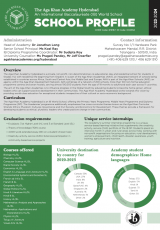An endeavor that motivates and energizes teachers
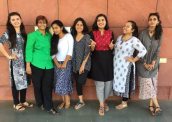
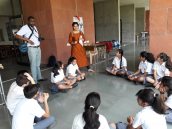
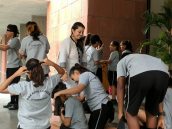
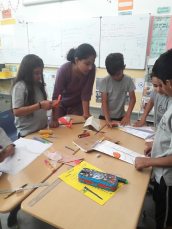
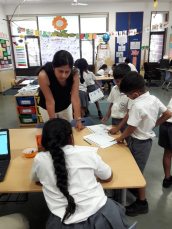
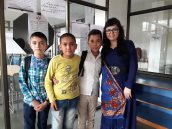
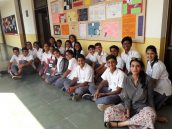 The power of Action Research as a tool for Teacher Professional Growth
The power of Action Research as a tool for Teacher Professional Growth
The Action Research Project is more than just a requirement of the Teacher Preparation Program (TPP) at the Aga Khan Academy Hyderabad. It is an endeavor that motivates and energizes teachers to explore the art and craft of teaching. As their mentor, I can see the growth that has ensued through the Action Research process. As teachers immerse themselves in academic literature and make sense of the theories and constructs, continually asking questions – they are excited about utilizing diverse ways of teaching and learning in their classroom. They have expressed that while it has been challenging at times, they have emerged stronger and more confident in their pedagogical knowledge through the process. After months of poring over academic literature and many drafts of their Action Research Proposal, most of them are at the data collection stage. I am as excited as they are to find out the outcomes of their analyses.
What is the best way to teach so that students get excited about learning? How do I engage and motivate students? How do I get students to take ownership of their learning? How do different models of Inquiry work? These are some of questions that teacher Afeera Maryam is determined to find out through her Action Research Project. What is the best way to teach students how to learn? What are some Approaches to Learning? How I can explicitly teach students learning skills? How I can teach media literacy skills? Should I use structured or guided inquiry? These questions intrigue teacher Manali Laskar and form the basis of her research.
How does mindset affect student performance? Does a fixed Mindset and growth mindset correlate with academic achievement? The impact of mindset is an area that teacher Nivedita Paul feels strongly about and has chosen as the focus of her research. How do we differentiate instruction in reading for students in primary school? What does differentiation look like in a classroom? Teacher Ekta Lalani has expressed that she has been grappling with these questions since she started her career teaching the primary grades.
How do I teach my students who are at distinctly different levels of language in my Dari language class? Will differentiated instruction really help me address their varying needs? These are questions that teacher Gulandam Sarwari hopes to answer to help her reach all her students. What are the different forms of inquiry and how can they be employed in different and relevant contexts? How can I get students to think conceptually? How can I use concepts as a guide to plan teaching and learning? How are the ideas of Paulo Freire and Neil Postman relevant today? These are questions that teacher Himani Sood has been wrestling with and hopes to come up with solutions and answers
Balancing Action Research whilst meeting all the demands placed on a teacher is not easy; however, one way that works is to weave the research into one’s long term and short-term teaching plan, fully integrating research within one’s classroom practice so it is not an add-on. Rather than viewing theory as separate from practice, teachers can now theorize on their own practice.
By Sandra Fonseca



